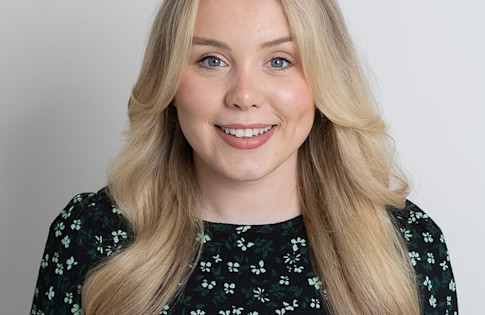App for Social Action at Dunoon Grammar School

Dunoon Grammar School is a mixed, non-denominational comprehensive school in Argyll and Bute in the west of Scotland. It’s in a rural, coastal location and teaches approximately 690 students aged 12-18. The school meets the Apps for Good criteria for ‘challenging circumstances’ in Scotland, scoring a below average rating on our internal calculations for deprivation which we base on the Scottish Index of Multiple Deprivation.
The Business and Computing faculty gives students in S1 and S2 experience in a broad range of subjects before they narrow down their choices into specific subject areas in later year groups. Apps for Good courses are embedded into their S1 provision, and Clare Litster (Business Education teacher) volunteered to deliver App for Social Action with her students when Apps for Good launched it as a new course in 2023/24. 40 young people took part in the course across two S1 classes.
2023/24 was Clare’s first year at Dunoon as well as her first year of teaching following her NQT year. Her experience gives us an insight into the benefits of the App for Social Action course for teachers, especially those who aren’t computing specialists: “Although computing science isn't my background, I didn't find it challenging to access the materials [...] I was able to build my computing science skills because I would follow along the lessons. That built my knowledge, and then it built my confidence in that subject area."

I always looked forward to those lessons because I knew that there was going to be high levels of engagement. I knew that the young people enjoyed it, and then, in turn, I really enjoyed teaching it.”
Clare Litster, Business Education teacher
Each year, the department surveys S1 learners to understand how much they enjoyed the different activities and courses. App for Social Action was voted by Clare’s students as the unit they enjoyed the most in their Business and Computing classes across the 2023/24 academic year. Clare attributes some of that enjoyment to the practical nature of the course and the social action focus which facilitated independent learning: “It was lovely to see their ideas flourish for what they really were passionate about, as well as the way that they were able to see their idea go from the development stage to creating an app. It's not just an idea that they're coming up with, they then actually get to physically use this app prototype. They loved being able to send a link to a phone and use it as though it was an actual app”. She continued, “I always looked forward to those lessons because I knew that there was going to be high levels of engagement. I knew that the young people enjoyed it, and then, in turn, I really enjoyed teaching it.”
13 teams from Clare’s classes entered the 2024 Apps for Good Showcase and one team was selected to pitch their app to Industry Volunteers as part of our Showcase week. Leigha, Olivia and Savannah won over the panel with their app idea, and were voted Judge’s Favourite in the ‘Inclusive Creators’ category supported by EPAM. Their app, Quacksaver, aims to support people struggling with their mental health by helping them create a routine and complete everyday tasks to boost their mood. It gives users a virtual pet that they take care of by ticking off daily tasks. The app also gives users motivational quotes and suggests coping strategies. Leigha echoed Clare’s comments on the independent learning aspect of the course, saying that the opportunity to be creative was the thing she enjoyed the most: “I really liked brainstorming ideas for the app because we came up with some good ideas”. Olivia agreed, saying, “The more we worked on it, the more I was invested and taking my personal time to think about other ideas for it. I was really into it and I really enjoyed this course.”
Clare observed a number of impacts on students’ essential skills, particularly confidence and teamwork. She also told us that the development of coding skills in turn positively impacted students' problem-solving skills: “It was their resilience to then problem solve and find that solution that I think is a real benefit.” Team Quacksaver also cited coding and teamwork as key skills they developed, with Olivia commenting, “I'm always working alone, I don't like working in groups. But this made it really enjoyable to be in groups.”
I never really considered [studying computer science], but now I can see myself working with computers and technology.”
Olivia, Student at Dunoon Grammar School
Reflecting on her students’ interest in pursuing computing through their future studies and/or career pathways, Clare felt that the App for Social Action course would encourage more learners to consider it as an option: “Sometimes computing science is seen as not something that's for everyone, whereas I think because [the course] was so accessible, a lot of our learners were able to then go, “Oh, I can do this. It's not as hard as I thought”. This was certainly the case for Olivia, who told us, “I never really considered [studying computer science], but now I can see myself working with computers and technology.”
Find out more and watch the QuackSaver presentation here